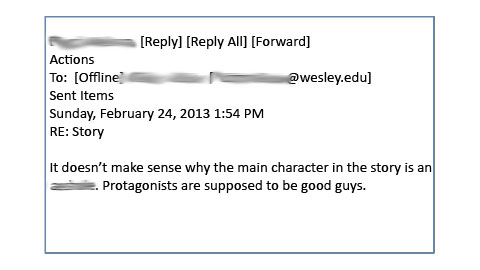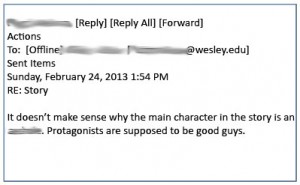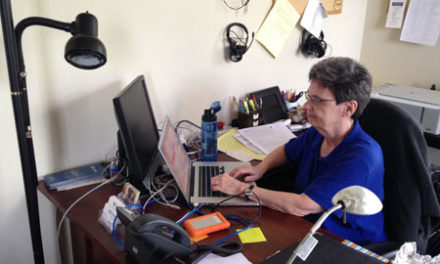By. Melissa Boyd  (Whetstone Staff Writer)
An email “content filter†that had blocked professor-student communication since March 2011 if the messages contained “inappropriate†words has been turned off.
The filter still has the ability to block emails with content relating to Social Security numbers, credit card numbers, viruses and SPAM.
“The change to the content filter has been received very well by faculty and staff,†said Jody Sweeney, chief technology officer at Wesley. “We continue to monitor the blacklists to make sure that our email system is protected.â€The filter, placed on the faculty and staff email servers, raised questions of academic freedom for both students and professors because it blocked certain words students might have wanted to send to their professors and vice versa. Words considered “inappropriate†included curse words, sexually explicit and racially derogatory words.Dr. Cynthia Newton, chair of the Student Affairs Committee, said faculty brought the “issue†of the content filter to the committee, whose job is to address student issues, especially those in the handbook.“We knew it affected academic freedom and we agreed that it was something to at least do more research to decide a course of action,†she said. “Jody Sweeney explained that he was already working on a solution when we contacted him.â€Junior Becky Zimmerman said she was happy that part of the filter was turned off, allowing students to email their professors freely.
“I think it gives students more freedom and peace of mind now,†she said. “Even if students didn’t use the specific words in emails [to professors], they now do not feel as controlled and held back.â€
She said that, if students were to send rude or threatening emails to professors, then students should be penalized, but not by enforcing a content filter.
“I think the email filter violated our freedom of speech and it made it difficult to complete some literature assignments that contain quotations with these ‘bad’ words in them,†she said.
Sophomore Jessica DeChamplain agreed.
“I like that students are being given the right to truly say what they want to a professor,†she said. “They don’t feel limited by what they can and can not say.â€






